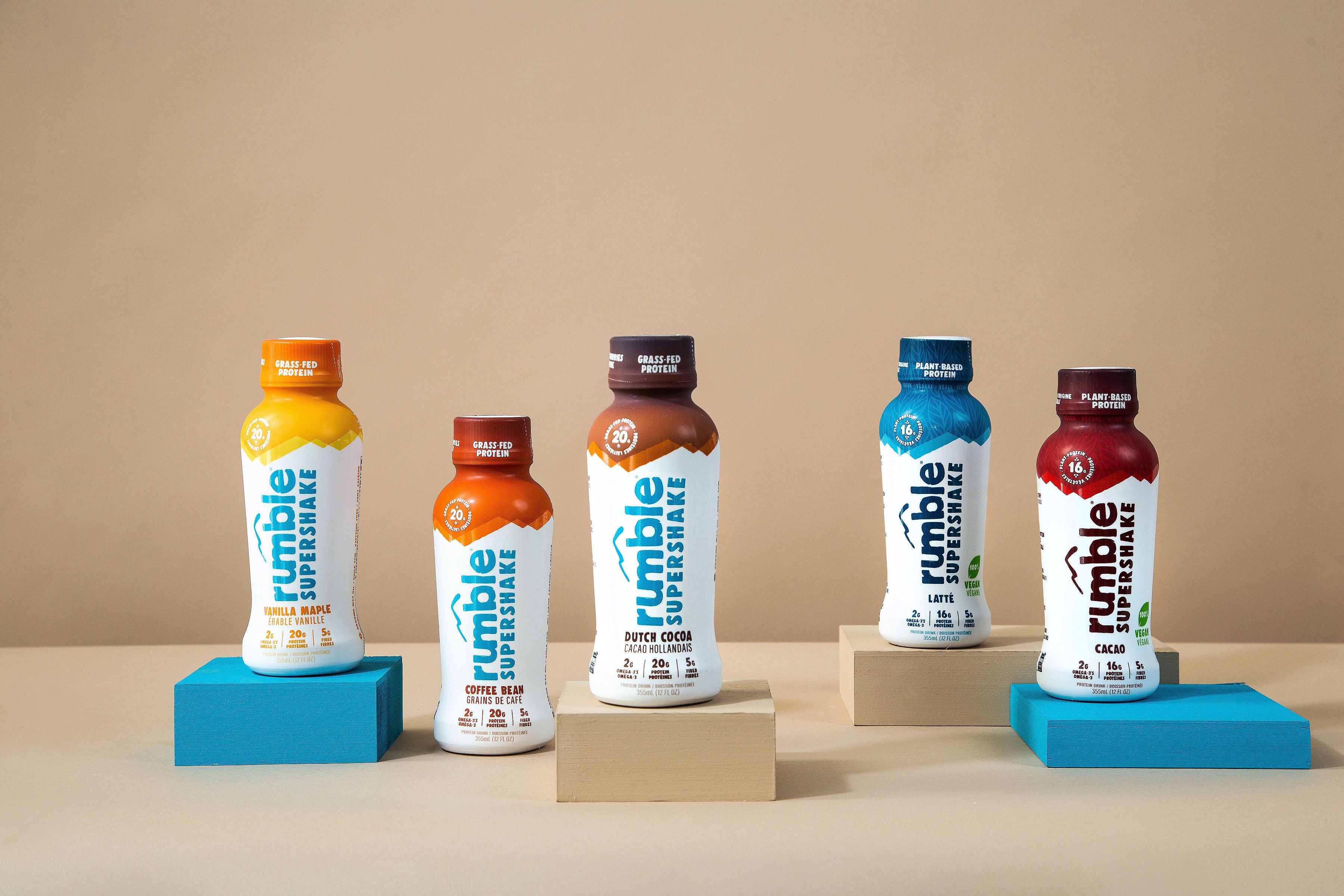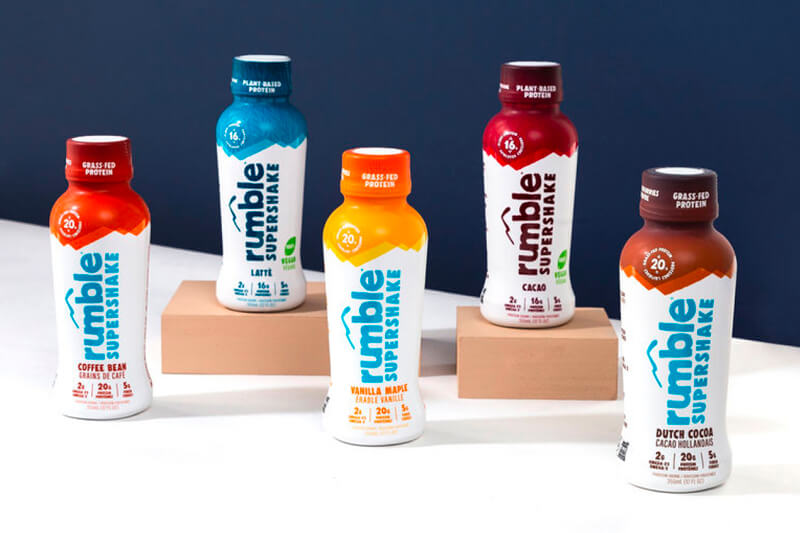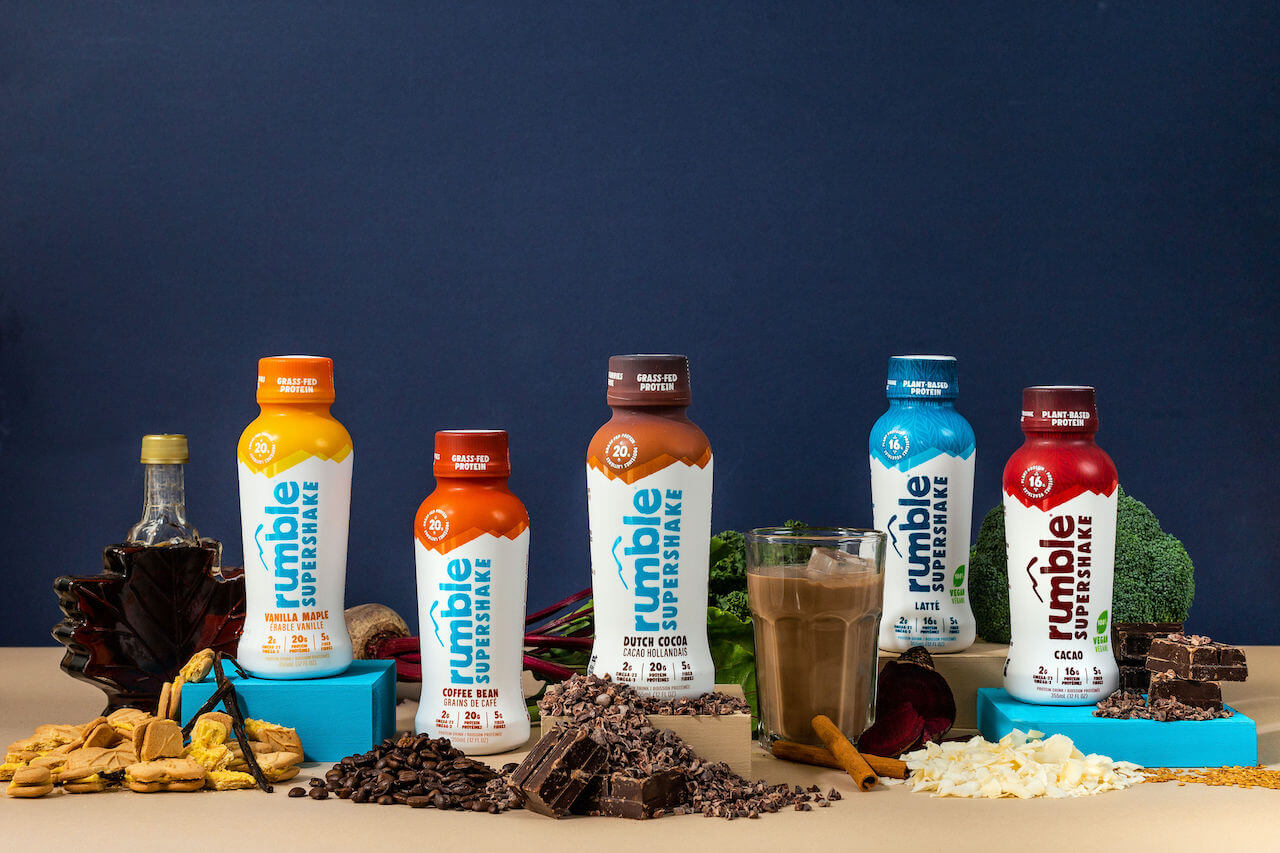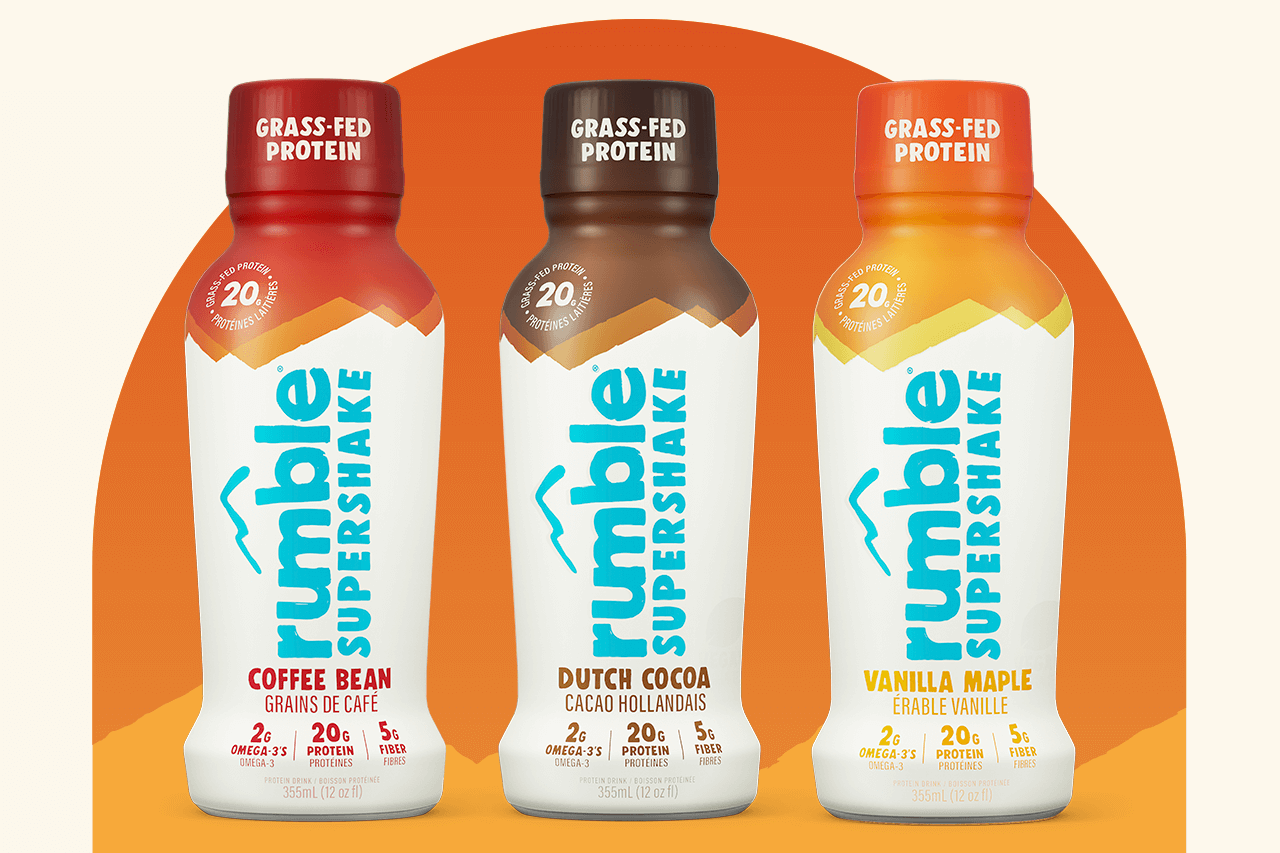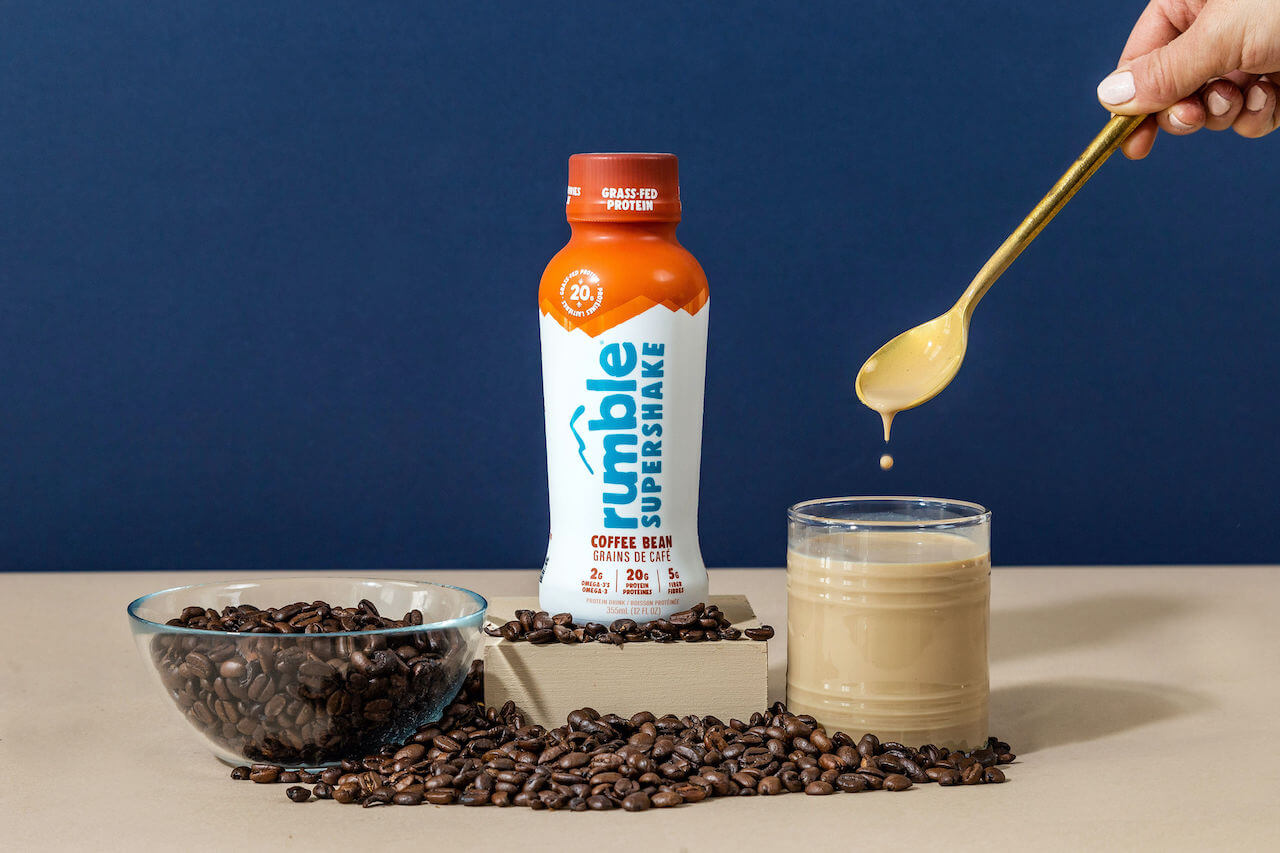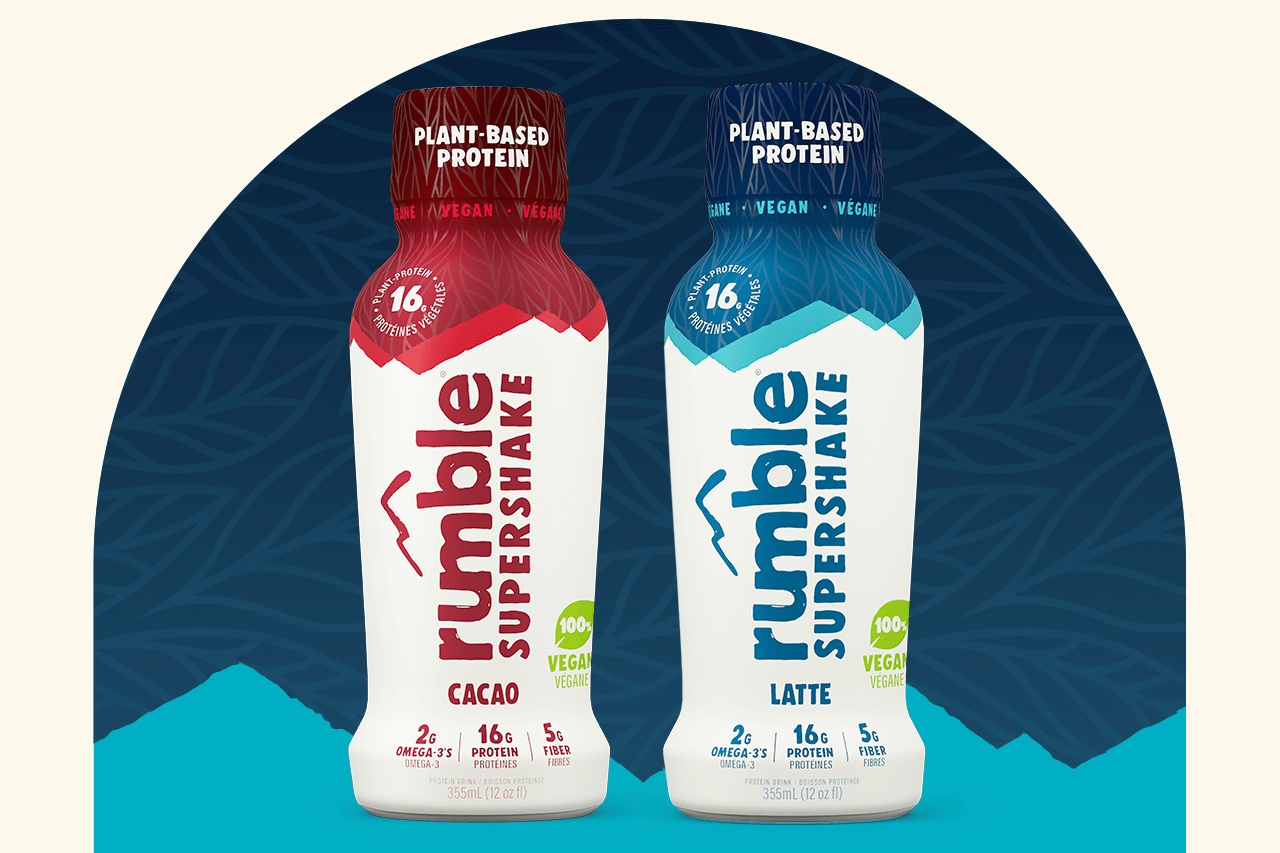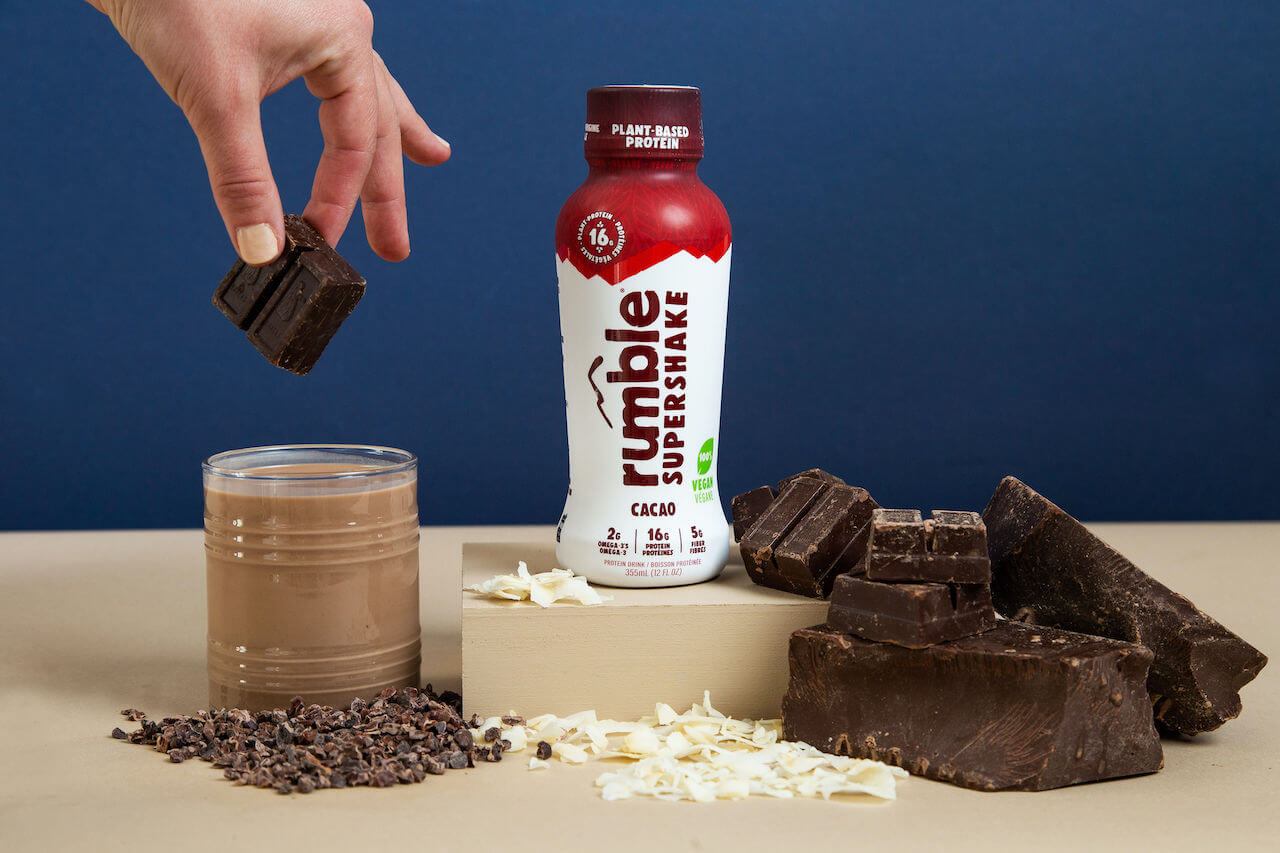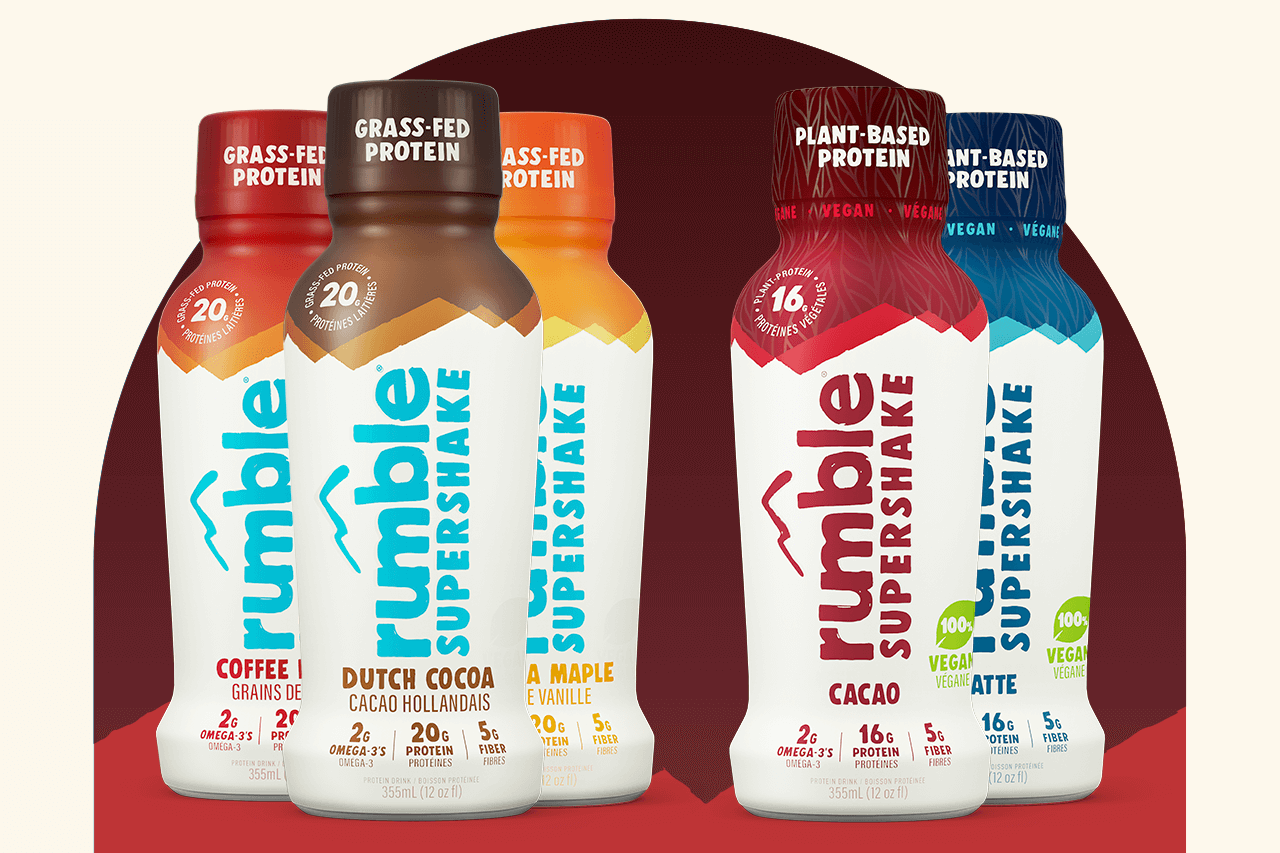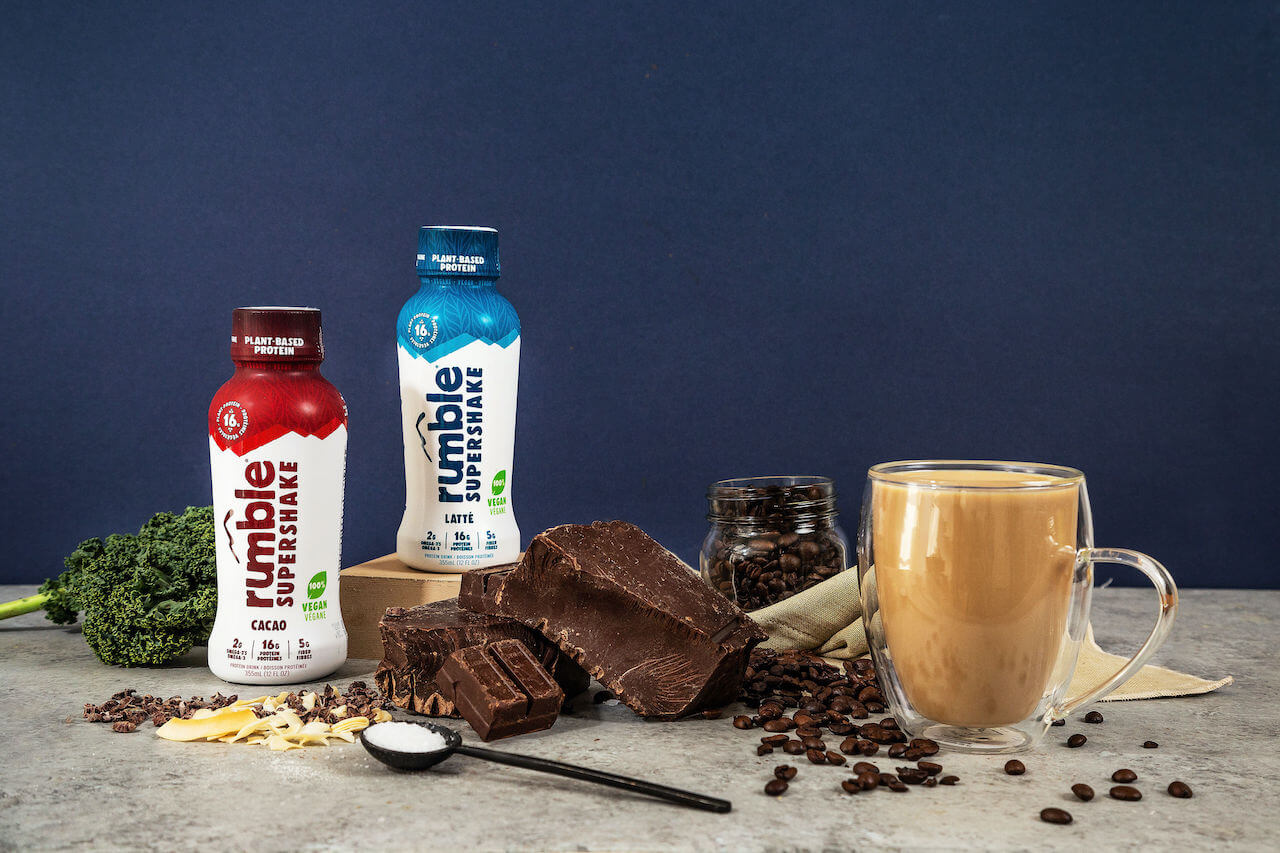Rumble Nutrition 101: Q&A with Paul and Rumble Dietician Rachel Dickens

There’s a lot of nutritional science behind Rumble! What started as a collaboration between creator Paul Underhill and his naturopath/co-founder Dr. Kim McQueen (ND), has evolved into a whole new Supershake, with awesome new ingredients and a renewed commitment to optimal, balanced nutrition.
The new Rumble is the result of a collaboration between Paul and our nutrition team, which includes medical specialists and advisors who bring the latest evidence-based research on health and nutrition to the table. The nutrition team works hard to stay up-to-date on diet trends and superfoods, evaluating health claims and proposing innovations to keep Rumble Supershake on the cutting edge of nutritional science.
As part of this effort, we've recently enlisted the help of local dietician Rachel Dickens (The Conscious Dietitian) to lend her expertise as one of our newest nutrition team members. Together, Rachel and Paul help advise on product development, recipe tweaks, and formulation (a.k.a., the fun stuff!).
Rachel comes to us as a Registered Dietitian and Certified Diabetes Educator, with a master’s degree in Nutrition and Dietetics from Griffith University in Australia.
We caught-up with Rachel with Paul to find out more about what’s next for Rumble, what ‘good nutrition’ means to them, and how the latest science is informing Rumble’s evolution.
Paul, the new Rumble Supershake was just launched in February, with new ingredients, taste, and packaging. So what prompted the decision to bring on Rachel now?
Paul: No rest for the wicked! Out of necessity, I’ve been an avid student of nutrition my whole life, but I don’t have any official training or designation. After a friend pointed it out, Rachel’s blog became a resource for me, and the whole Rumble team was really impressed with her plant-based and planet-friendly recipes. Throw in her lifestyle (surfing, fitness etc.), and it was obvious Rachel would be a great resource for us as we continue to challenge the status quo and evolve to stay on the forefront of nutritional excellence.
Does this mean we’ll get a new flavour soon??
Paul: We’d love to bring out a new flavour (and we’re certainly looking at that possibility), but our key objective has always been to be the healthiest (and tastiest!) choice available. This means not just thinking about new flavours, but continually assessing the nutritional impact and taste of our existing flavours.
Rachel, as a dietician, did you know about Rumble before Paul and the team reached out?
Rachel: Yes definitely! Many dietitians in Victoria discovered Rumble early on, as it’s a healthy alternative to the standard meal replacements currently being offered in hospitals. As a dietician, I often have clients in the hospital asking for something that isn’t full of sugar and heavily processed ingredients. Rumble also sponsored my friend who was a professional skier!

How does Rumble line-up with your approach to nutrition?
Rachel: I am a big advocate of whole-food nutrition, and like all Registered Dietitians, I am always looking for evidence-based nutrition claims. I love that Rumble is exactly as it claims to be - packed full of nutritious ingredients that are backed by science.
Often, when I am assessing a client’s diet, I can see that important and essential nutrients are lacking - maybe because of their busy schedule, lack of nutrition education, or in certain cases, higher nutrient requirements.
One big one is omega-3 fatty acids. While many of us can aim to get our omega-3s from two servings of oily fish per week, I try to be conscious and aware of the growing concerns around overfishing and the sustainability of eating fish. I love that Rumble contains a high amount of plant-based omega-3 fatty acids from flaxseed, which is a more sustainable omega-3 fatty acid and also an evidenced-based choice!
Rachel, we heard you put Paul on a new diet since joining the team! Any results yet?
Rachel: While I am comfortable providing meal plans for those with Diabetes, I have never worked on a diet plan for someone with Cystic Fibrosis before. The high caloric requirements, combined with low glycemic index for blood sugar stabilization (and…ahem, Paul’s long list of food avoidance) made for quite the project!
It also really made my appreciate how much work goes into eating healthy when you are trying to keep your calories up. Too much meat and dairy, over-processed carbohydrate foods, and poor-quality vegetable oils are huge aggressors in the inflammation battle. Rather than bulking up on simple and easy-to-access foods that are strongly linked to inflammation, Paul was able to follow a 3000 calorie, nutrient-dense meal plan, which also includes 2 Rumbles per day, to help him reach his goals.
Paul: Yes! Results have been amazing, with my Hemoglobin A1C (a proxy for average blood sugar over the last 3 months) at 5.8, it’s now at its lowest since 2016. I’m super impressed with Rachel’s plan! As a diabetic, to have an A1C in the normal range is simply fantastic, and I give credit to Rachel (and a nod to Rumble) for helping me achieve this.

Do you two have any goals for product development going forward?
Paul: We always strive to be incredibly healthy and tasty, and also as sustainable as possible. I’m a perfectionist, so the goal will be to improve on all fronts continuously!
Rachel: Rumble has already ticked so many boxes in terms of ethical and sustainable choices. I would love to see new and creative ways to keep Rumble ahead of the sustainability game.
It feels like every month there’s a new diet or food fad - how does Rumble stay above the noise?
Paul: We tend to stick with what has proven effective, and look to what helps as many people as possible. As far as I know, we are the only drink in our category that is truly focussed on an anti-inflammatory approach (while maintaining balance!).
Rachel: Rumble is rooted in the anti-inflammatory approach, which is not only important for Paul’s health, as everyone would benefit from more anti-inflammatory foods! Many of the new fad diets that I have come across forget that chronic inflammation is the root of so many diseases including type 2 diabetes, heart disease and Alzheimer’s.
What do you mean by anti-inflammatory foods?
It makes good sense that if we want to live a prevention-focused lifestyle, we need to set our sights on reducing inflammation before the damage is irreversible. The science on anti-inflammatory food choices is well established, and Rumble contains many proven anti-inflammatory foods, such as:
- Omega-3 fatty acids. These are found in flaxseed oil, and they convert to DHA and EPA, which are considered potent anti-inflammatory fatty acids. They’re thought to be protective against some cancers and heart disease, in addition to playing a role in a healthy brain and balanced mood.
- Green tea. Green tea contains a compound called catechins, the most famous of which being EGCG, or epigallocatechin-3-gallate which has a role in reducing inflammation.
- Organic kale and broccoli sprouts. These are potent sources of anti-inflammatory phytochemicals. Glucosinolates in greens are converted by our intestinal bacteria to isothiocyanates. Indole-3-carbinol and sulforaphane are two of the best-studied isothiocyanates and have the ability to down-regulate inflammation. In addition, kale is also a rich source of anti-inflammatory kaempferol, lutein, and quercetin.
- Organic spinach. Spinach is a great source of anti-inflammatory chlorophyll, the magnesium-rich pigment that gives spinach leaves their rich green colour. Spinach is also rich in carotenoids, such as lutein and zeaxanthin, which are both suppressors of pro-inflammatory pathways.
- Tomatoes. These are rich in lycopene, a potent antioxidant and anti-inflammatory compound that is thought to protect prostate health, prevent UV damage in the skin, and support heart health. Tomatoes also contain naringenin, lutein, and zeaxanthin, which also oppose inflammation.
- Cacao. Cacao contains flavonoids that help moderate inflammatory pathways and lower inflammatory markers in the body.

When considering a new flavour or supershake, how do you work together with the rest of the nutrition team to make decisions? Is it ever tough to get consensus?
Paul: We have a great team where everyone is encouraged to contribute and be heard, but at the same time it’s the customers’ voices that matter most. Consensus takes time, but perhaps surprisingly is not as challenging as you might think!
Rachel: This is a tough one! I know what I like, but it might not always translate over to what everyone else likes. When I make a smoothie at home the flavours always change - I love matcha pineapple, turmeric coconut or chocolate chai. I think it is best I keep the flavour decisions to the experts… I’ve been told that spirulina is a little too out there ;)
What does a healthy diet mean to you both?
Rachel: A truly healthy diet not only nourishes our bodies, but it is also good for our planet. By being considerate and conscious of the environmental impacts of our food choices, we can be sure we are taking the necessary steps to ensure we continue to have access to clean water, uncontaminated food, and clean air.
Working primarily with people living with diabetes, I appreciate the importance of choosing foods that do not contribute to inflammation and looking at food choices that are nutrient-dense, meaning a higher amount of nutrients per calorie. I also truly believe that how we eat and who we eat with plays just as large a role in a healthy diet as what we put in our mouths. Eating with family and friends helps to build community, brings people together, and creates a supportive environment around food.
Paul: Can’t say it better than that! Honestly, this is one more reason why I love working with Rachel: she expresses what I think beautifully. At the end of the day, how I feel after eating is my own barometer of a healthy diet, and the impact is a part of that for sure.
Give us one or two things we should all be doing to improve our nutrition.
Rachel: Eat more fibre! Most of the population is not getting enough fibre, and we know that fibre helps to manage cholesterol and blood sugar levels.
There are certain types of fibres called prebiotic fibres, which are what the beneficial bacteria in our gut feed on. When the bacteria ferment these prebiotic fibres, they form highly beneficial compounds called short-chain fatty acids or SCFA. SCFA provide a range of beneficial functions, including maintaining our gut integrity and preventing pro-inflammatory molecules from crossing the gut wall. SCFA may also have a role in appetite regulation, decreasing obesity risk factors and reducing the risk of cardiovascular disease.
Another way to improve our nutrition is by gaining access to fresher and more local foods if possible. Food often has to travel large distances to reach our plate, and many nutrients are sensitive and degrade when exposed to heat, light and oxygen. If able, look for a local farm that does a weekly vegetable box program, or visit a farmers market on the weekends. Even better - try to grow or forage for your own foods. Berries are an easy option, and if you know someone who can help you identify other available wild edibles that’s a great start too.
Any hints as to what’s coming next from Rumble?
Paul: Well, I don’t want to raise expectations too high, but I can assure our friends that we have been hard at work in hopes of bringing some variations and further improvements to Rumble for 2020…


